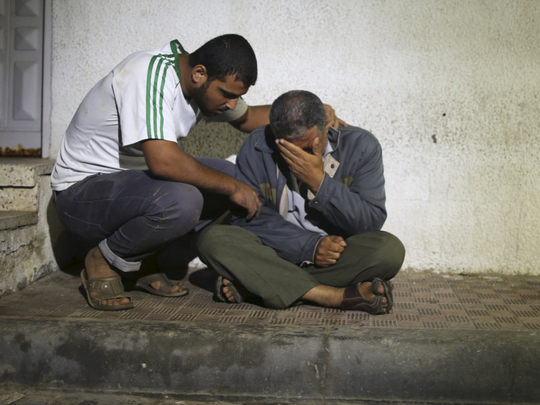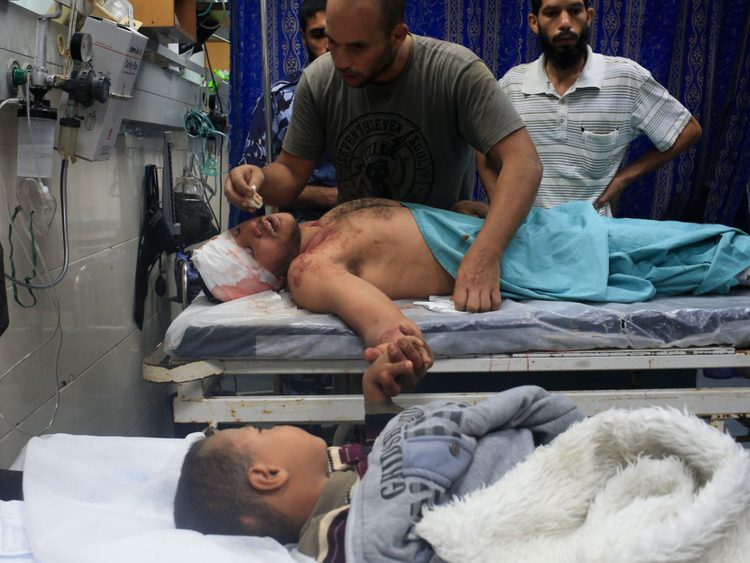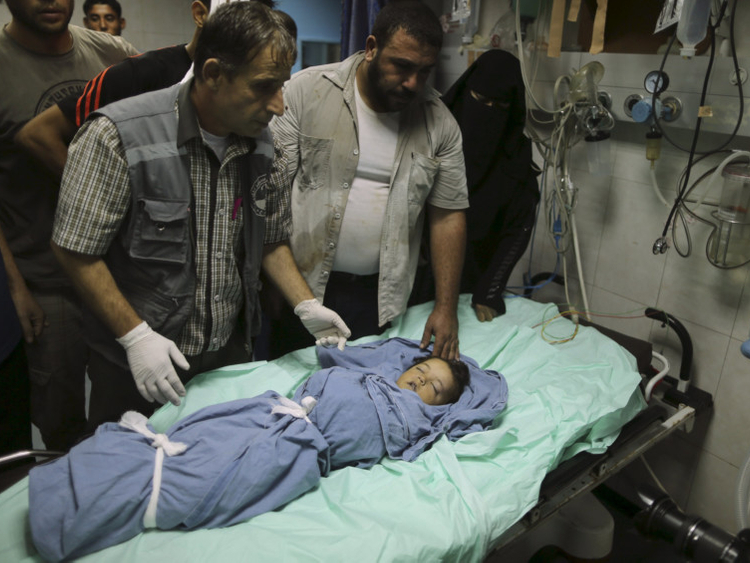
Occupied Jerusalem: A new wave of violence has hit Israel and the Palestinian territories, prompting warnings of the risk of a third intifada similar to uprisings that began in 1987 and 2000.
Here is a series of questions and answers about the situation:
Is this the beginning of a new intifada?
The risk certainly exists, but it is too soon to say whether the current violence in east Jerusalem and the West Bank will escalate into a broader uprising. Spikes in violence frequently lead to talk of a new Palestinian intifada, and “today, after several weeks(of unrest), nobody can say that we are heading towards something that will last several years”, said Nathan Thrall of the International Crisis Group.
Why has the situation become so volatile?
Palestinian frustration has mounted with efforts towards statehood at a standstill and Israel’s occupation continuing. A recent poll showed that a majority of Palestinians favour a return to armed uprising in the absence of peace talks.
There is also deep mistrust of and animosity towards Israel’s government, one of the most right-wing in the country’s history. Before March elections, Prime Minister Benjamin Netanyahu ruled out the establishment of a Palestinian state before later backtracking.
On top of that, an increase in Jewish colonists raiding Al Haram Al Sharif have sparked Palestinians to rush and defend their holy site.
“The Palestinians have lost hope in reaching a political compromise and all doors are shut in front of them and their leadership,” said Ali Jarbawi, political science professor at Birzeit University in the West Bank and a former Palestinian government minister.
Where does the Palestinian leadership stand?
This is a major issue and one of the great unknowns. Palestinian president Mahmud Abbas said in his UN General Assembly speech two weeks ago that he was no longer bound by previous accords with the Israeli regime since it has been consistently violating them.
It is unclear, however, if his words will be translated into concrete action. Abbas’s Palestinian Authority coordinates on security with the Israeli regime and any change to that could lead to chaos in the West Bank, according to some analysts.
Abbas’s rival Hamas, the Islamist movement that runs the Gaza Strip, is busy attempting to rebuild after last summer’s devastating war with Israel and it is unclear if it is prepared for more conflict.
What could set off a broader uprising?
Ariel Sharon’s, Israel’s then-prime minister, visit to Al Haram Al Sharif in 2000 helped ignite the second intifada which lasted until 2005. The first intifada (1987-1993) was preceded by a gradual increase in tensions, with a deadly crash in the Gaza Strip the final spark.
In the current climate, clashes between Palestinians and Israeli occupation forces or Jewish colonists have the potential to spin out of control.
What would keep the situation from unravelling?
Many do not want another uprising, including a large number of Palestinians weary from repeated conflicts. Some analysts say Abbas would prefer continued security cooperation with the Israeli regime as a way of shoring up his leadership at a time when two-thirds of Palestinians think he should resign.
Much will depend on whether both Israeli and Palestinian leaders actively work to calm the situation - and whether a new generation of Palestinians who may not feel beholden to Abbas or his allies responds to any such appeals.
How has Israel responded?
Netanyahu, whose coalition holds only a one-seat majority, is under pressure from some rightwing members of his government to act more forcefully. He has declared “war” on stone-throwers and loosened rules for when officers can shoot Palestinians.
He also plans swifter demolition of Palestinian homes as a collective punishment, broader use of detention without trial for suspects and police and troop reinforcements for occupied Jerusalem and the occupied West Bank. He has spoken of using restraining orders to keep Palestinian defenders of Al Haram Al Sharif away.














